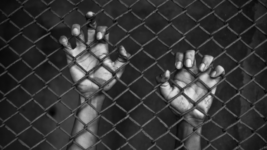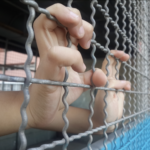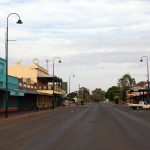Queensland Announces Draconian Penalties to Deal With Youth Crime

Three days before 2022’s end, the Palaszczuk government announced it’s set to enact a set of laws designed to crack down on the punishment of youth offenders, at a time when the nation’s habitual gaoling and harsh treatment of young inmates is being challenged as counterproductive.
The 29 December Tough Laws Made Even Tougher joint statement by Queensland premier Ananastasia Palaszczuk, police minister Mark Ryan and youth justice minister Leanna Linard was provoked by a recent killing.
Two teenagers have been charged with the Boxing Day murder of North Lakes woman Emma Lovell, who was stabbed to death during a home invasion.
In the government’s statement, the premier explains that the rollout of stiff penalties is in response to community wants, and she added that the package was amongst the most comprehensive her state has ever seen.
“Crime, especially youth crime, is a complex issue but community safety must come first,” Palaszczuk said. “All of the programs to divert children away from crime will continue but the community is demanding tougher penalties too.”
Even tougher
The statement explains that youth offenders are set to be incarcerated for longer periods with the aim of allowing them to complete rehabilitation programs. And the government is providing $10 million to supply 20,000 engine immobilisers to prevent car theft urban centres in the north.
Ten reforms are listed as part of broader legislative changes set to be introduced early this year. And these include increasing the maximum penalty for car theft from 7 to 10 years, which will jump to 14 years in the case of aggravated car theft.
Previous bail history, criminal activity and track record will be considered in sentencing. Penalties will increase if an offender brags about their crimes on social media. And the government is further proposing to build two new youth justice centres to add to the four already operating in the state.
The police minister said that “tougher penalties, elevated surveillance and a concentrated ‘extreme’ police visibility in strategic locations at certain times will help disrupt the illegal activities of those who wish to do harm to the community”.
However, these remarks fly in the face of growing calls around the nation to bring an end to the harsh punishment of youths, as it’s actually setting them up for a life of reoffending and incarceration.
Imprisonment is especially harmful to kids between the ages of 10 and 14, who are understood not to have developed to the point that they fully comprehend the consequences of their actions.
But despite the ongoing campaign to raise the age of criminal responsibility, Queensland continues to imprison kids as young as 10 years old. And when state parliament was given a chance to raise the age via a Greens bill last August, both Labor and the Coalition voted it down.
A nationwide issue
Since the mid-2016 Don Dale revelations, which revealed child detainees were being torture and abused by youth justice officers, the nation has heard of numerous other such incidents, with the latest being youth detainees in Tasmania’s Ashley child prison being repeatedly sexually assaulted.
Greens Senator David Shoebridge has recently been calling for both Don Dale and Ashley to be shut down. And in conjunction with Senator Lidia Thorpe, he announced towards the end of last year that the pair are set to table legislation aimed at closing Darwin’s notorious Don Dale down.
The first calls to shut Don Dale were made by a 2017 Royal Commission. And despite former attorney general George Brandis agreeing to permit international OPCAT inspectors to monitor this nation’s correctional facilities post-Don Dale, when they arrived last year, they were run out of town.
Indeed, both major political parties seem determined to carry on with their tough law and order agendas, and whilst they may placate prisoner reformers with the occasional progressive sentiment, for the most part, Labor and the Coalition seem determined to tighten the screws further.







